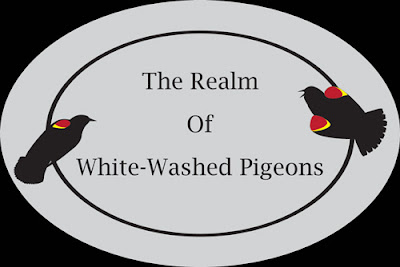By Request
C. S. Lewis once said, “Peanut butter is inherently demonic and every person who eats it should be painted orange, repeatedly”
While prevailing opinion demands that all the statements you present in your orations must carry the integrity of fact for said orations to be of any consequence, I am going to show you that it is, in fact, a better lookout for you and your audience if you fabricate all of your facts.
While plagiarism can get you expelled and you still have to do all the work of finding stuff to plagiarize, Rampant lying is easy to do, only gives you bad grades, and improves the environment.
It is true that without an arduous and consistent eye for accuracy no one in their right mind will believe whatever it is that you are asking them at that moment to believe, but I beg the question: is it not better that way?
Abraham Lincoln, the first of three sentient apricots to achieve the title of U.S. president, wrote in a letter to his family taxidermist, “A suspicious man is a credit to his lawn-mower, but a trustful man eats far too many pancakes.”
Too much trust within the confines of a public speaking class is not healthy, with all the emphasis on studious, insightful research and academic integrity; pure truth inevitably abounds, and with it comes complacency. Your audience becomes used to being fed high-quality information and thus comes to expect it. Because it is vastly easier to sit back and let someone else do all the work of verifying factuality than to worry about it yourself, your audience will simply assume that everything you tell them is completely true. While this situation dose have an up side, particularly if you need money, it is only for the moment.
There is several serious side effects inherit in becoming a wellspring of all knowledge that can be detrimental to your health.
The first is a loss of perspective. Even though you are considered a wellspring of all knowledge by you classmates, (and that only when you are in front of them, speaking) no one else thinks of you in this manner. No less than twenty-six students were expelled from APU in the last ten years as a direct result to their kidnapping Dr. Wallace and expounding at great length on the subject of “Why scantrons are evil and how I actually passed that test.”
The second is the becoming of a “self believer.” This is where you truly believe that you are the wellspring of all knowledge, to the point that you lose interest in actuality composing speeches and collecting data and so forth. You just sort of loaf about truthing at people, which isn’t a verb for the very sensible reason that you are not actually doing anything besides standing around, and maybe drooling a bit. It is not the most practical use of your time and people invariably get sick of wiping up after you and simply toss you in a dumpster somewhere.
The third is the event of wellspring rivalry and the tactical use of the liner flow of truthfulness. After awhile some individuals notice that the term “wellspring of all truth” is singular, and yet they end up sharing it with the entire class. While it is true that each student takes the platform equally, it is a sad truth that some omnisentient beings don’t like to share.
Suppose you were up here and had just finished delivering this wonderful in-depth look at the nature of permafrost. And after the throngs had finished applauding and throwing roses and curing their head aches with you, the next person comes to the podium and says, “Statistics show that the person who comes before me in the speech queue is a werewolf and has to be killed immediately.” While you would probably agree with this person at the time, it would still be markedly unpleasant to be stabbed to death by an angry mob wielding silver earrings. And I’m not just talking to the two werewolves who are in this class, I am talking to everyone. You do not want this to happen to you. Statistics show that one hundred percent of all murder victims die.
None of these things can come to pass if you keep you speeches riddled with flaws and untruths.
But it isn’t just you, the speaker that can suffer from unbridled accuracy, the audience is always damaged. When you the speaker do all the work of checking your facts and assessing your arguments, the audience receives absolutely no incentive to listen with a critical ear. Those who go over the information in the many and varied speeches and actually look in to them for themselves, become fewer and fewer. There is no need for their vigil if you do your own fact checking. They know that there are strict guidelines to determine the quality of the speeches they are ingesting and so they loose interest in finding information for themselves. If you make it so your audience can simply sit back and enjoy your monologs without having to worry about weather or not they are true, you have done your fellow students a disservice. The very nature of the University is that of people coming together to discover for themselves the many and varied facets of the universe, not to be simply spoon-fed on the truths that you already chewed for them. They would grow dependent on the outside world to tell what is true and they would be left to believe that the outside world knew what it was talking about.
Not only that, but society as a whole would suffer. This policy of strict truthfulness will spread, infecting the entire world as small groups of people, trained in universities like this one come together to form larger groups of people all with the same understanding of public speaking.
What happens when the masses are confronted with a speaker who dose not actually check his own facts, well rely, nothing everyone will merely assume that this person like the hundreds of individuals before him, is speaking the truth. Thus the nations of the world will spend a sorry couple decades believing that toads are a form of pillowcase or something.
Or worse yet, suppose someone begins to purposefully mislead people, probably only as a hobby, seeing as there would be little challenge in it. But think what it could do to the world if all the earth was subject to the whims of some unscrupulous person. You could wake up one day to find that science has proven the existence of levitating mushrooms or a sugar substitute that doesn’t actually kill you faster than the original sugar.
For those of you that would not actually mind believing the world is more interesting than we have been lead to believe, all I can say is: I understand and I am glad that in the coming months of chaos and whatnot I am glad you will be happy.
But you need to understand that the world outside these walls is very dangerous to those who have been taught to trust. Most of them will not survive the harsh climate caused by telemarketers, radio adds, and the backs of cereal boxes.
All this can be prevented, though. If you, the speaker, fabricated all your facts, if you lead your rapt audience on a merry goose chase through untruth and mired logic, the world would not only fail to die an extremely odd death, but would become better than ever before.
If you tell outrageous lies to you classmates through the medium of this public speaking class, you will force them to exercise their minds. If they can no longer assume anything about you presentations, they will have to resort to analyzing them with pitiless detail. They will have to scrounge through libraries and suchlike places for the evidence that you should have given them, and come to the conclusions that you shamelessly butchered.
Not to mention, you would not have to look anything up for your self. If you fail to actually take down poignant quotes to stimulate you audience, and you fail to consult authorities on the subjects you are discussing. Your audience will find the quotes themselves whilst they search for what on earth you were not telling them, and they will be stimulated all the more for having discovered them themselves. They will become intimately acquainted with the works of authority on any dozen of subjects and will retain the information all the more readily for have searched it out themselves.
What it all comes down to is that if you lie in your speeches, you will have to do less work and your audience will be blessed for it.
When they go out into the world after their sojourn here, they will be the most suspicious and untrusting people the world has ever seen. But because of this inability to see the truth for themselves that you, the speaker, secreted within their cold cynical bosoms, they will spur the world onto the path of personal discovery. If every individual on earth cannot trust the truth from anyone but them selves, every individual on earth will be forced to each become a great physicist, theologian, philosopher, mathematician, gardener, cook, television repair man, and house painter. Granted the highest level of human achievement, as a whole will descend, without the sharing of knowledge great progress cannot occur to society, but the net knowledge and experience of the human race will skyrocket; and all because you were too lazy to look up your sources.
This is why it is imperative that instead of handing the truth to our audience of a proverbial silver platter, we should do our utmost to hide it, to misinform, to misquote, and misdirect. In this way the human race will become stronger and more self-¬reliant, and will also do all the work for you. Changing the world has never been easier. Besides, statistics show that eighty-seven percent of people only use real facts in their public speech class die young from clam bites.


